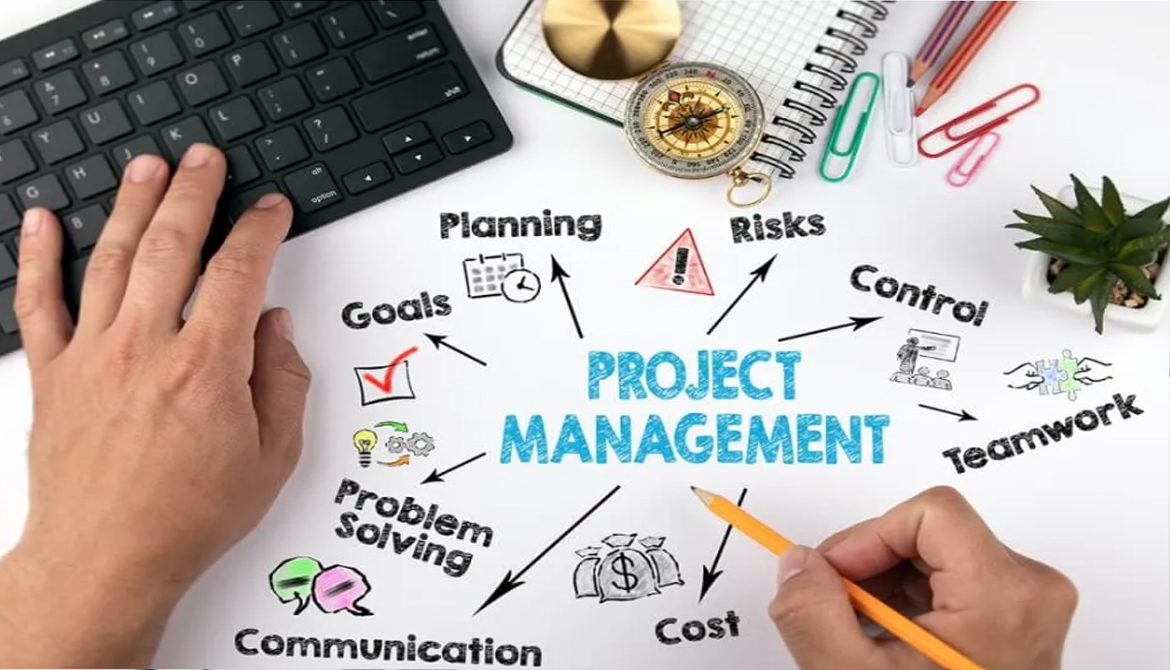Study at your own pace
Choose the pace at which you'd like to complete. While Accelerated Credit Options help your finish in faster time.




Utopia College
An imaginary place considered to be perfect or ideal.Utopia College
An imaginary place considered to be perfect or ideal.Utopia College
An imaginary place considered to be perfect or ideal.Utopia College
An imaginary place considered to be perfect or ideal.Utopia College is committed to be a globally recognized innovative on line higher education, serving those who strive to make a difference in their professional career and community. The program is envisaged to be a hub of academic activities, including training and research, and to become one of the best online programs in the field management science nationally and internationally in 2030.

Choose the pace at which you'd like to complete. While Accelerated Credit Options help your finish in faster time.
All our Programs are designed to be done completely online. Program Admission to Examinations, you'll never need more than a computer to get it done.
Our Programs are affordably priced, with payment plans that let you pay in various Modalities, with no hidden charges at any time.
With a team of student support staff and counsellors available 18 hours a day, you'd never be working alone!
Online learning explained a need for online learners Element of online education
You will now complete an application for online learning that requests for personal information and educational background.
You can take a 10-question test on digital literacy skills. To be eligible to apply for the Select Online Learning Program, your score must be at least 50%.
At this stage there will be an agreement form between you and utopia college. By submitting this form you agree to the rules and regulation of utopia college
1. Laptop 2. Internet connection 3. Webcam 4 Virtual address(i.e. Email, Telegram Account, what’s App Account)
E-Lesson. E-learning materials for solitary study that include both individual work and lectures from the teacher. Within a predetermined window of time, students are free to select the time and location of their studies. collaborative projects. A number of communication methods can be used by learners, facilitators, and instructors to collaborate. These can both be Synchronous - live sessions, including audio and video conferencing, are scheduled (students must be online at the same time). Asynchronous learning uses wikis, forums, and emails as communication tools for group projects and conversations when students are not obliged to be online at the same time.
Two key advantages of online learning are flexibility and convenience. But online learning is a lot more challenging than it may seem. Are you considering taking some or all of your courses online? Good for you! But first, make sure you're ready to succeed. Online learning can sound so wonderful that some students start with an unrealistic vision. In reality, online courses require just as much, if not more, time and energy as traditional classroom courses. It also requires specific computer skills and learning strategies in order to succeed.

This course aims to provide students with critical awareness of, and skills in strategic and operational management of IS/IT as a strategic resource. Students will be exposed to the details in planning and management of information technology in organizations.

The aim of this course is to equip the student with the skills, knowledge and techniques necessary to propose, design, conduct and produce a thesis research report. Thus, by studying this course students will develop the personal and professional skills required to design and undertake research in IT management area at post graduate level.

This course aims to provide an insight into the implementation of information and information system security in computer systems and to encourage students to appreciate the practical and theoretical management principles associated with securing information and the system.

The aim of this course is to present the principles and practices involved in business process innovation and reengineering. The basic principles of business process management is considered both from the viewpoint of establishing an entirely new business venture and from within an existing organization. Systems thinking, strategies for process improvement and innovation and tools for workflow and supply chain analysis, and development will be discussed. The course will also cover business process modelling; business process outsourcing; planning & implementing business process innovation; soft issues in business process innovation projects; the management of implemented business processes; information requirements for business process innovation; management and control systems; and e-services and applications.

This course is designed to give students the exposure to the intricacies of information technology law and the ramifications for modern society, including the challenges of privacy and other invasions that individuals face in an "information society" ruled by modern technologies like Databases, the Internet, Social Media, and the Worldwide Web. The course enables students to assess critically a selection of fundamental legal issues in the field of Information Technology (IT) Law.

This course covers the management of projects. A major focus is on how to manage various IT projects to successful completion within the constraints of resources and time. Included in the contents are the frameworks for proposal writing and planning, monitoring and controlling, and performance evaluation. Various project management techniques are covered including PERT/CPM and project appraisal. Case studies and field projects as well as lectures will be used as teaching methods.

This course examines the cross-functional, integrated computer- based information systems, commonly referred to as Enterprise Resource Planning (ERP) systems, designed to support an organization’s information needs. Management systems, common business processes, and re- engineering/change management are introduced with a holistic perspective. The course also considers issues associated with the analysis, design, implementation and configuration of such enterprise systems. This course will introduce you to enterprise systems and show how organizations use enterprise systems to run their operations more efficiently and effectively. You will learn about the critical success factors and implementation strategies that lead to enterprise system success, and about the informational, knowledge, and decision-making opportunities afforded by enterprise systems.

This course is designed to teach students systems thinking that will help them develop sustainable information systems solutions. Systems thinking recognizes that entities are influenced by and influence the other entities in the ecosystem in which they exist. Systems thinkers understand that mutual interactions determine the current and future state of all entities. Systems thinking focuses on understanding the complexity of interactions within a system and teaches analysis and modeling of systems interactions. Systems thinking is a holistic approach to problem solving.

This course is designed to let students investigate and discuss selected topics of current interests in the area of information and technology management. Students will also be exposed to techniques of proposal writing. The instructor will decide on the area of emphasis and will avail published research papers to students or students can select recently published papers on accredited journals or conference proceedings. Students (individually or in groups), critically and scientifically review a published paper, prepare a report and present their findings.

This course is designed to investigate and to discuss advanced topics of current interests in the area of information and technology management

A thesis proposal is a document that outlines the thesis topic, defines the issues that the thesis will address, and explains why the topic warrants further research. It should identify a problem and provide a proposed solution to that problem.

This course is intended for Master’s level students to create a Master’s Thesis project and to see it through to the first draft. In this semester, students will work with their thesis committee to make any necessary revisions to the thesis proposal and produce the first draft of the thesis. Students will work one-on-one with their thesis advisor and the thesis coordinator to identify times that they will meet and create a plan for communication throughout the process of completing the Master’s Thesis.

Introducing the concept of Digital Literacy. Optimised for mobile.


The course introduces the principles and functions of management at an advanced level and evaluates the relevance and applicability of management theory and thought to modern management practice in general. This is achieved through, inter alia, provision of a foundation in general management concepts and practices related to organizations and their place in the wider international context.

This course focuses on the acquisition of financial resources and their effective utilization in running a business enterprise for profit. Course deals with: the overview of managerial accounting and financing, analyzes financial statements, product and service costing and cost volume profit analysis, budgeting processes and performance reporting, time value of money and capital budgeting

The course is intended to provide participants with an understanding and interpretation skill of a broad range of economic concepts and relate them with day to day business decision making activities. It will try to addresses a range of economic concept such as the market models. Elasticity and pricing decision, market structure and optimal managerial decision, strategies and tactics in game theory, aggregate demand and aggregate supply models, IS-LM-BP model . It will also highlight the role of intellectual capital, the theory of outsourcing, the theory of productivity, international regulations and constraints.
Managerial Economics is the application of economic theory and methodology to managerial decision making problems within various organizational settings such as a firm or a government agency. The emphasis in this course will be on demand analysis and estimation, production and cost analysis under different market conditions, forecasting and decision making under uncertainty. Students taking this course are expected to have had some exposure to economics and be comfortable with basic algebra. Some knowledge of calculus would also be helpful although not necessary..

This course is aimed at developing the student’s ability in scientific analysis and providing them with opportunity for the application of concepts and tools in dealing with social, economic, political and other problems. It covers design, methods research of formulating research problem, sourcing and collection of data. This course provides students with applied skills in understanding and conducting research in business. The course examines and explores a range of methods that align with theory building and testing. The basic focus of this course is on the understanding of how analytical and statistical techniques and thinking can aid in managerial decision making. Both qualitative and quantitative approaches are examined. Topics range from exploratory methods (focus groups, interviewing) to observation techniques, sampling, through to interpretation and evaluation of statistical analysis (data processing and research analysis using the latest versions of SPSS), thus, enabling them to turn raw statistical data into strategic information.
This course are acquiring knowledge and understanding of basic principles of business research methods. This course equips the participants with knowledge, skills and insights in business research methods. The philosophies, theories and principles that build the capability of students on recognizing research problems, streamlining them, solving them with logical and scientific inquiry will be covered at length. Both quantitative and qualitative research methods are equally emphasized as a guide in gaining insights in the business research process. More specifically, such topics as research problem identification, standard measurement scales, quantitative research design, qualitative research design, mixed research designs, research instrument development, research proposal development, qualitative and quantitative techniques of data analysis which include both descriptive statistics as well as inferential statistics, writing research reports, etc will be discussed.
This course aims at providing students with concepts of decision making using decision criteria, linear programming, queuing, inventory management, and simulations models. In order to know significance of quantitative analysis in managerial decision making understand the different models of Operation Research appreciate the application of OR model in solving different quantitative problem. To make rational decisions based on quantitative evidence
This course aims at providing students with the necessary knowledge and skills for carrying out statistical analyses on different sets of data, and the ability to interpret the results of such analyses. This course includes operating SPSS 14.0 for Windows, a widely utilized statistics software package, quantitative tools for solution of management problems involving risk, competing objectives, and complex constraints. Advanced formulation and modeling of business problems in a spreadsheet environment, techniques of linear, integer, and nonlinear programming, multi-objective goal programming, and simulation. Applications from finance, marketing, and operations.
The course also includes hands-on experience with techniques for solving these problems, consider challenges that executives and organizations encounter when implementing these approaches, and tools and techniques for applying quantitative techniques to decision making.
Operations Research (OR) as one of the quantitative aid to decision making offers the decision-maker a method of evaluating every possible alternative (act or course of action) by using various techniques to know the potential outcomes. It includes Models and modelling, linear programming, transportation models, assignment models, decision models, project management techniques, and queuing models

This course deals with product development, facility planning, work and job design, operations planning and control systems. It also covers value engineering, quality assurance and materials management of service and manufacturing organizations. The skills necessary for resolving technical, administrative and behavioral problems in the operations of manufacturing and service organizations are presented in this course. Topics include: product design, process design, capacity planning, location decision, facility layout, production planning and controlling, production scheduling, aggregate production planning, and statistical quality assurances. Operation management is a process of bringing people, machines and materials together to create goods and services in most efficient and effective way. Operations in business represent both the production of goods and the delivery of services. This course emphasizes on the development and design of products/services; the selection of location; the arrangement of manpower, machines and facilities; and the strategic importance of the management of production/services of a business organizations. The course covers product design, production process alternatives, facilities location and site, layout design, work measurement, deterministic and stochastic inventory management, techniques of production planning and quality control, the technologies (including computer systems) used in production/services.
Operations Management the heart of all management disciplines which bring competitive advantage and market focus for all business organization. Thus, the course covers Meaning of operations and production management, operations management as competitive weapon, product and service design, quality and quality control, capacity planning, location decision, layout decision, aggregate planning, scheduling, work design, and time-based operations.

This course focuses on the financial applications of statistical techniques. Econometrics students to test theories in finance, estimate asset prices or returns analyze the relationships between variables, forecast financial, economic and managerial variables etc. Decision making in business and economics is often supported by the use of quantitative information. Econometrics is concerned with summarizing relevant data & information by means of a model. Such econometric models help to understand the relation between economic and business variables and to analyse the possible effects of decisions. In this course, the class is to be started with the quick review of probability and statistics and hypothesis testing that are the basics of econometrics. Then introduce simple and multiple regression techniques; the estimation of regression using ordinary least squares; inference; and the use of spreadsheets and statistical software to estimate economic models.

The course organizational behavior is a field of study that investigates the impact those individuals, groups and organization structure has on behavior with in organizations; and the application of this knowledge to improve productivity and job satisfaction in an organization. Organizational behavior uses systematic study to improve behavior so as to increase productivity and employee satisfaction. This course deals with theories of organizations, environment and organizational goal setting, organizational Behaviour, individual attitude and perceptions, individual and group attributes in organizational behaviors, group dynamics, group and team formation, power and politics, conflict, and conflict management.

Project is a distinct and well-organized group of activities to which economic resources are committed and is under taken within a specific time frame to achieve one or few specific objectives. Projects are associated to alleviating socioeconomic problems or enhancing business interests of business organizations. Project Management is the process of planning, implementing, and monitoring a set of activities to be accomplished within a specific time frame in ordertoachievesomespecificobjective/sthroughtheproductionandprovisionof some unique deliverable/s. This module, therefore, introduces the fundamentals of the project concept such as the meaning, attributes, characteristics, importance, and classificationofprojectsaswellastheirrelationswiththeenvironmentandstakeholders andthelifecycleconceptandmodelsofproject.Themodulealsocoversmeaning, features, and process of Project Management from a System point of view. The unique environment, functions, and roles of project management and project managers are given special consideration in this module. Such advanced issues as organizing and staffing the project office, team management, time management, and project leadership (stress and conflict management, performance management, working with executives etc) shall also be overviewed here.

A capstone course requiring the application and integration of principles from various disciplines including, finance, marketing, human resources management and in the solution of project managerial problems and the development and implementation of strategies in a changing environment. In addition to this, the course Strategic Project Management will help students align the project management effort with the emergent strategy of the entire organization and emphasizes on effective project management as a competitive weapon. The course must be taken during the last semester of the enrollment to the program. Topics such as the nature of strategic management, environmental analysis, successful and failed project analysis, competitive strategies, formulating project strategies, etc will be covered.
This course integrates the core functional disciplines of business within a strategic perception. The course introduces several strategic management concepts including industry analysis and dynamics, the organizational resource audit, strategic topologies the role of general manager and the management of strategic transformations. The principal objective is to develop and enhance student ability in problem identification, environmental and organizational and action implementation. While Policy focuses more on the purpose, mission, vision, or values, of the organization, Strategy deals more with developing top management's game plan for enabling the organization to adapt and exploit changes in its environment. Since the problems, issues, and decisions facing senior general management are complex, messy, and quite unstructured, the overall purpose of this course is to provide conceptual and analytical tools to enable you to think strategically about how to effect positive change within the organization and in the society at large. The course is integrative, and builds on students' understanding of the functional areas of the firm including operations, finance, marketing, human resource management and organizational design. Through readings, case analysis, real world company strategy analysis, simulation and discussion, course participants will learn the processes, tactics and schemes for specific action that firms use to achieve their intended business objectives.





